The occasional intake of a high vitamin E dose of 400 IU may be beneficial for many people. But, a daily dosage of 400 IU, although safe, it’s unnecessary!
Table of Contents
- How much Vitamin E should I take daily?
- Is it Safe to Take 400 IU of Vitamin E from Supplements per day?
- What’s better? A 400 IU Pill once a day or a Diet high in Vitamin E?
- Is Vitamin E Deficiency Common?
- Vitamin E & Health
- Does Vitamin E play a role in Weight Loss?
- Who should take Vitamin E supplementation?
- Tocopherol vs. Tocotrienol
How much Vitamin E should I take daily?
The recommended daily vitamin E dosage for adults is 15 mg.
Only lactating women require higher dosages of 19 mg of vitamin E per day. Furthermore, kids and teens need about 7 mg and 11 mg of vitamin E per day, respectively.[1]
VIDEO SUMMARY
Is it Safe to Take 400 IU of Vitamin E from Supplements per day?
The maximum safe dosage of vitamin E for healthy adults is 1,000 mg (or 1,500 IU of the natural form).
Most vitamin E supplements contain 400 IU (or 268 mg) of vitamin E per capsule, though.
Although daily dosages of 400 IU of vitamin E are pretty safe for healthy adults, they’re unnecessary in most cases.
Supplementation at 400 IU may be appropriate under medical advice for specific conditions, such as deficiencies, skin health, or antioxidant therapy.
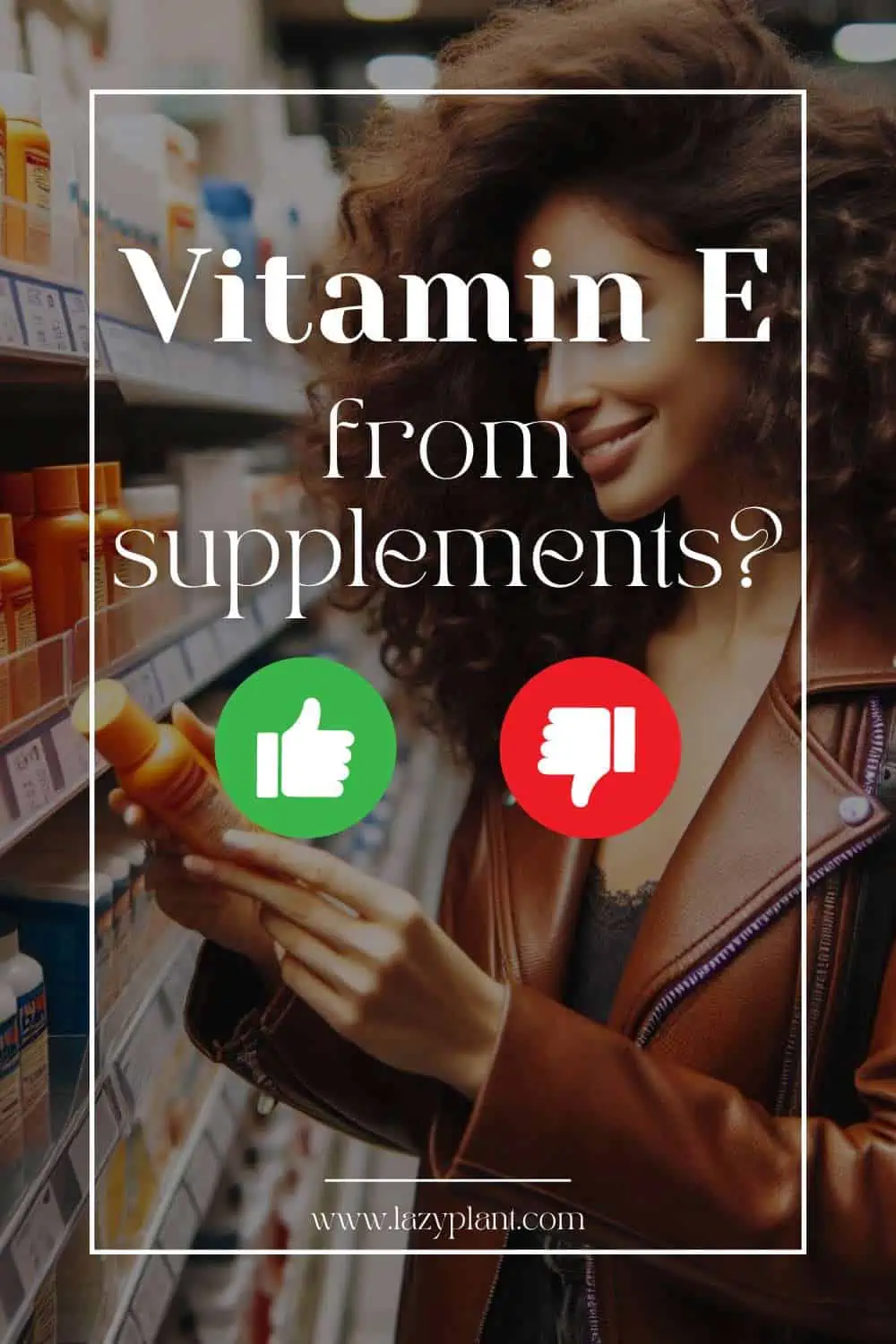
However, doses above 400 IU are sometimes linked to an increased risk of bleeding due to vitamin E’s blood-thinning properties, particularly in people on anticoagulants or with clotting disorders.
Certainly, you should consult your healthcare provider before taking vitamin E doses of 400 IU or higher from supplements. Especially, if you’re taking medication.
The maximum safe daily dose of vitamin E is 1,000 mg for adults.
Do supplements have more Vitamin E than the maximum daily dose?
Most vitamin E supplements don’t exceed the maximum safe dose. They contain between 180 and 670 mg of vitamin E per tablet. Hence, they’re considered pretty safe. As a rule of thumb, prefer supplements containing low amounts of vitamin E, though.
What’s the best type of Vitamin E Supplement?
You better prefer vitamin E supplements that contain the natural form of alpha-tocopherol, as it’s twice as active compared to the synthetic form. We absorb it more easily. Vitamin E supplements that contain the natural form are labeled as “d-alpha-tocopherol”.
On the contrary, the synthetic form is labeled as “dl”, instead of “d”: “dl-alpha-tocopherol”.
If you want additional health benefits, consider supplements that include a mix of tocopherols and tocotrienols, which provide a broader spectrum of antioxidant protection.
Opt for supplements that are third-party tested to ensure purity, potency, and absence of contaminants.
As most supplements contain much higher doses of vitamin E per capsule than the recommended daily intake, healthy people better prefer vitamin E supplements with the lowest amount of vitamin E.
What’s the Best Time to take Vitamin E Supplements?
Always take vitamin E supplements with a meal. Especially, a meal that contains fats. Vitamin E is a fat-soluble vitamin. The digestive tract requires fat to absorb it. Good sources of fat are seeds, nuts, avocado, and olive oil.
Dangers of Prolonged Supplementation
While vitamin E is generally considered safe when consumed within the recommended daily allowances (15 mg or 22.4 IU for adults), excessive or prolonged supplementation can lead to health risks:
Increased Bleeding Risk: Vitamin E, especially at doses above 400 IU per day, can interfere with blood clotting. This is particularly risky for individuals taking anticoagulant medications, as it may heighten the risk of excessive bleeding.
Potential for Hemorrhagic Stroke: Studies have linked high doses of vitamin E supplements to a slightly increased risk of hemorrhagic stroke, a condition caused by bleeding in the brain.
Cancer Risk Controversy: High-dose supplementation over long periods has been investigated for its impact on cancer risk. For instance, some studies suggest an increased risk of prostate cancer in men taking high doses of vitamin E supplements, while others report neutral or beneficial effects.[2,3]
Toxicity Symptoms: Though rare, very high doses of vitamin E (e.g., over 1,000 mg daily) may lead to toxicity, causing symptoms such as nausea, diarrhea, fatigue, and blurred vision.
Frequency of Vitamin E Supplementation
For healthy individuals with no medical conditions affecting absorption, there is usually no need for regular vitamin E supplementation if your diet is balanced and includes nuts, seeds, green leafy vegetables, and plant oils.
If you have a medical condition requiring supplementation (e.g., fat malabsorption or non-alcoholic fatty liver disease), supplementation may be used under medical guidance. Frequency and dosage will depend on your condition, with typical therapeutic doses ranging from 200–400 IU per day.
For those who are unsure about consistent dietary intake, short-term supplementation during times of increased oxidative stress (e.g., during illness, high-intensity exercise periods, or environmental stress) might be beneficial.
Consult your healthcare provider to determine appropriate timing and duration.
Balancing Vitamin E in Your Diet
To avoid over-reliance on supplements, aim to meet your vitamin E needs through a nutrient-rich diet. Foods like almonds, sunflower seeds, spinach, and avocados are excellent sources. A varied diet makes it less likely you will require regular supplementation.
What’s better? A 400 IU Pill once a day or a Diet high in Vitamin E?
First, eating foods high in vitamin E hasn’t any adverse effects. Overdose of vitamin E from dietary sources is highly unlikely.
Moreover, the body can’t absorb high doses of vitamin E. We absorb only a percentage of a 400 IU dose.
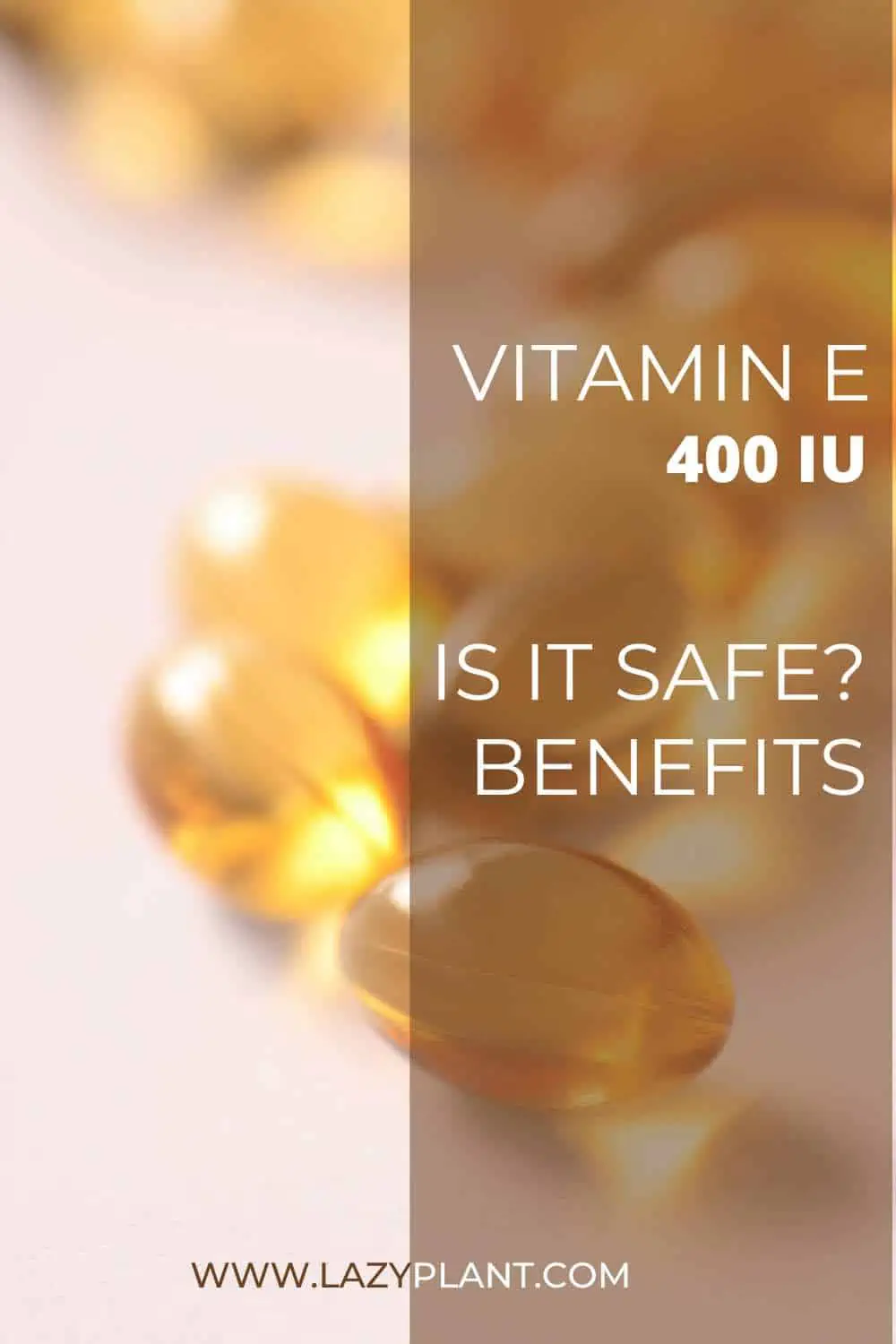
Also, vitamin E gets in the body pretty fast. Taking a 400 IU pill in the morning can protect you only for 4 hours. The rest of the day, you’re probably exposed to oxidative stress. On the contrary, getting many small doses of vitamin E from food during the day may be better for protecting the body from oxidative stress.[4]
The natural form is more bioavailable and better absorbed by the body. If you’re choosing a supplement, look for those labeled as “d-alpha-tocopherol” or mixed tocopherols, which contain a blend of vitamin E types similar to what’s found in food.
Can we depend on food to get the recommended daily intake?
There are many good dietary sources of vitamin E. Regular consumption of vitamin E-rich foods, such as nuts, seeds, vegetable oils, and green leafy vegetables, can help achieve this required daily intake.
Wheat germ oil is the richest food in vitamin E. It has almost 150 mg of vitamin E per 100g.
Other vegetable oils, like sunflower oil, rice bran oil, grapeseed oil, and canola oil are also great dietary sources of vitamin E.
| vitamin E mg/100g | |
|---|---|
| wheat germ oil | 149,4 |
| sunflower oil | 41,1 |
| rice bran oil | 32,3 |
| grapeseed oil | 28,8 |
| canola oil | 17,5 |
| corn oil | 14,3 |
| apricots, dried | 4,3 |
| avocado, Florida | 2,6 |
| spinach | 2 |
| kiwi | 1,3 |
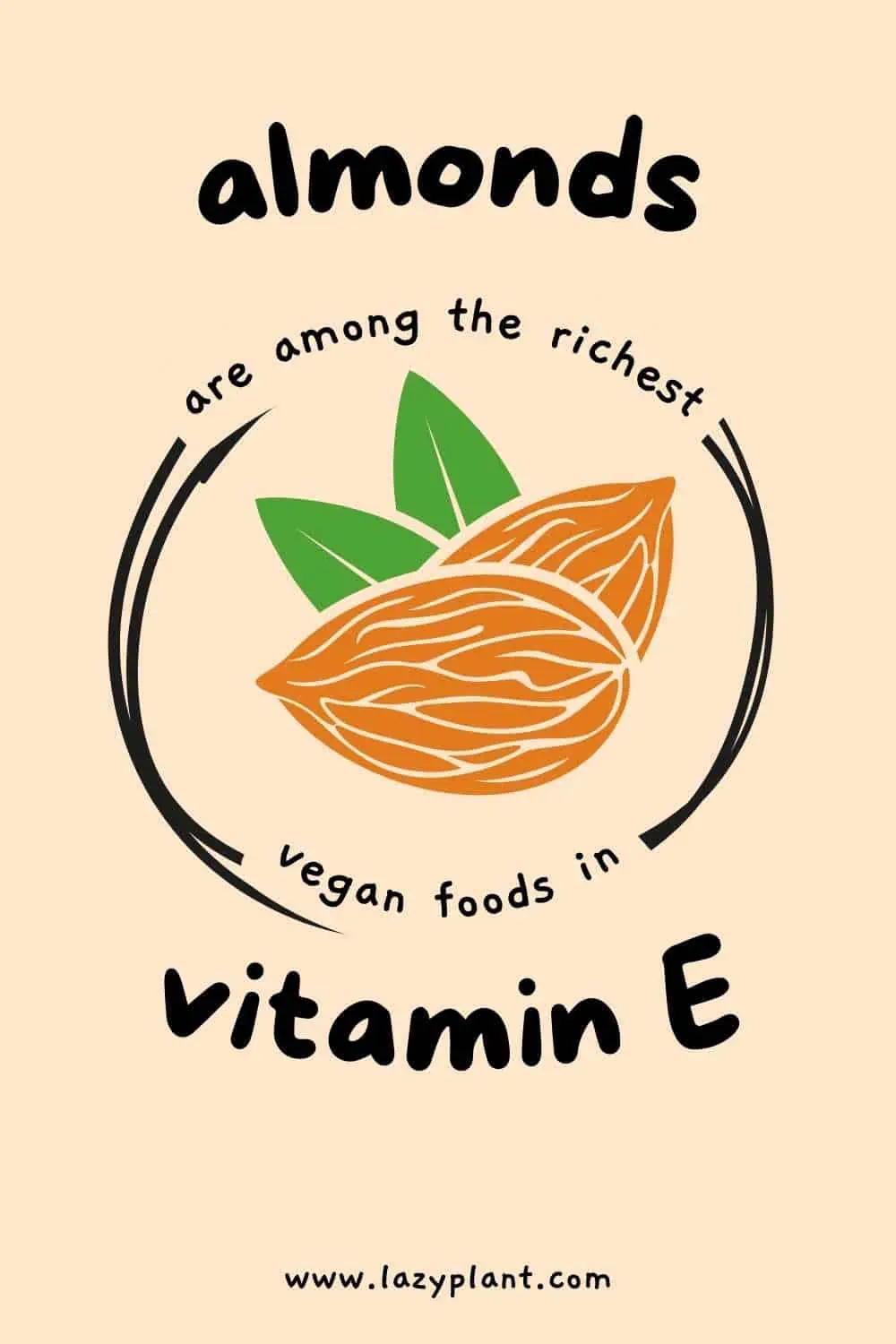
Most nuts and seeds are high in vitamin E as well, with sunflower seeds being the richest common food in vitamin E. A handful provides 67% of the Daily Value. Almonds and hazelnuts are excellent dietary sources as well.
| vitamin E (mg per 100g) | vitamin E (mg per 1 oz) | % DV | |
|---|---|---|---|
| sunflower seeds | 35.2 | 10 | 67% |
| almonds | 25.6 | 7.3 | 48% |
| hazelnuts | 15.3 | 4.3 | 29% |
| pine nuts | 9.3 | 2.6 | 18% |
| peanuts | 6.6 | 1.9 | 12% |
| Brazil nuts | 5.6 | 1.6 | 11% |
| pistachios | 2.9 | 0.8 | 5% |
| pumpkin seeds | 2.2 | 0.6 | 4% |
| sesame seeds | 1.7 | 0.5 | 3% |
| pecans | 1.4 | 0.4 | 3% |
| walnuts | 0.9 | 0.3 | 2% |
Vitamin E content of common nuts & seeds.
Sunflower seeds, almonds, and hazelnuts are common foods high in vitamin E. I consume half a handful of these every day.
Is almond milk rich in vitamin E?
Almond milk is particularly rich in vitamin E as well. It contains up to 3.3 mg of vitamin E per 100 mL. A cup of almond milk provides up to 8.3 mg of vitamin E. This amount is 55% of the Daily Value!
There are almond milks containing less vitamin E, though. They may provide only 25% of the DV per serving. Still, all almond milks are a great alternative to cow’s milk, which contains only negligible amounts of vitamin E.
Can I get too much vitamin E from food?
The maximum dose stands only for dietary supplements. Research hasn’t found any adverse effects from consuming foods high in vitamin E. After all, we can’t possibly get too much vitamin E from diet. Common foods don’t contain high doses of vitamin E.
Is vitamin E of Food Bioavailable?
There are many factors that influence the bioavailability of vitamin E. The most important factor is fat consumption. We have to consume foods with healthy fats to absorb more vitamin E from diet or supplements. It’s estimated that less than 45% of vitamin E of almonds is bioaccessible.[5]
Is Vitamin E Deficiency Common?
Most people who follow a standard American diet fail to consume the recommended daily intake of vitamin E. Thus, researchers suggest that we should substantially increase the consumption of whole seeds, nuts, fruits and vegetables in order to meet our daily vitamin E needs.[6]
In the United States, for example, over 90% of individuals consume less than the estimated average requirement for vitamin E.[7]
In certain regions, particularly in Asia, the prevalence of vitamin E deficiency can be higher.
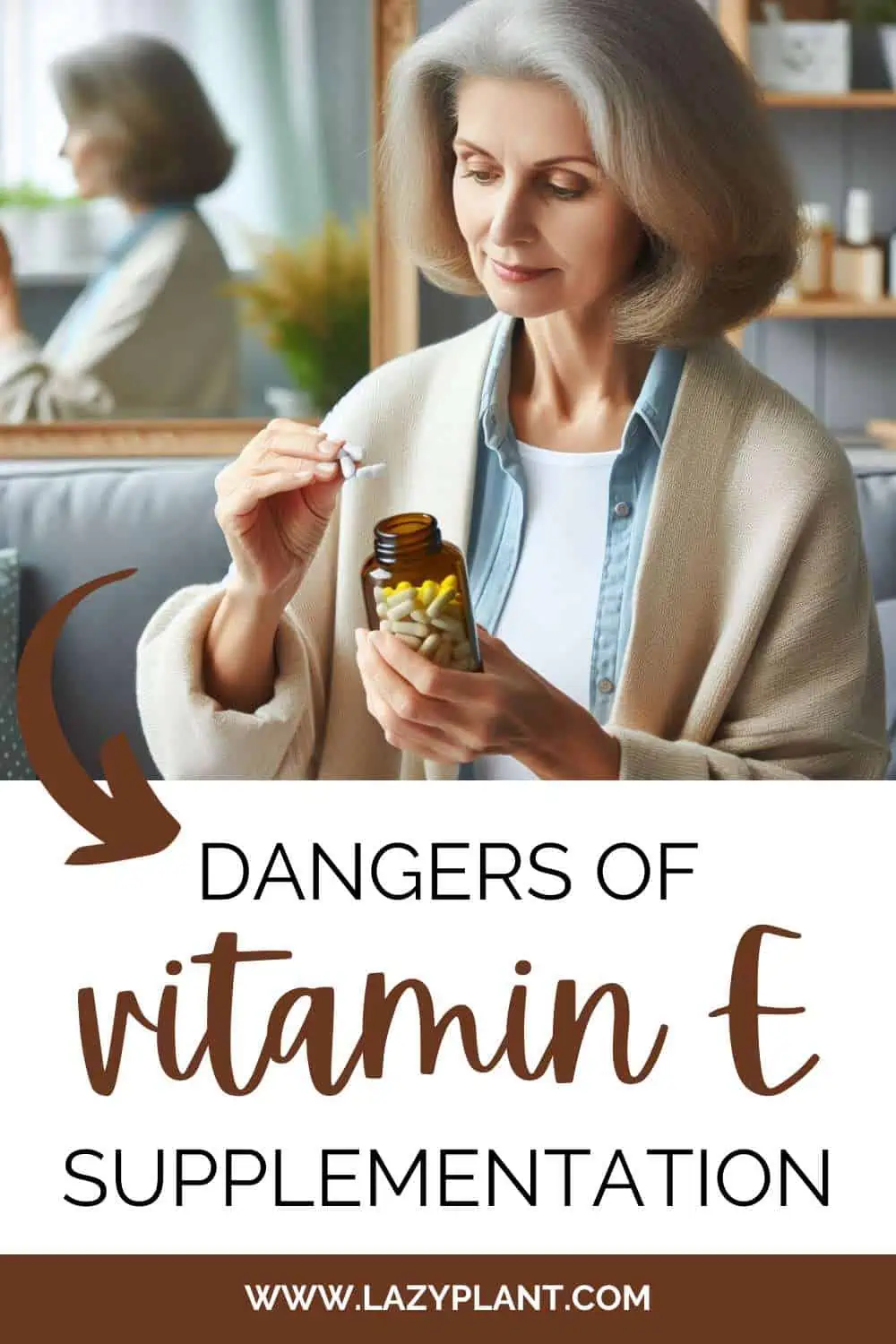
People who follow a low-fat diet should be very cautious with vitamin E intake. First, the digestive tract requires fat to absorb vitamin E. Secondly, most vegetable oils are rich in vitamin E.
Keep in mind, that vitamin E deficiency symptoms aren’t always obvious. So if you don’t follow a well-balanced diet, you might benefit from taking 400 IU of vitamin E from supplements now and then.
Vitamin E & Health
Vitamin E has powerful antioxidant and anti-inflammatory actions. Also, it may protect against heart disease, some types of cancer, cognitive decline, and eye disorders.
May prevent coronary heart disease
Vitamin E is good for the heart. It inhibits the oxidation of LDL-cholesterol, which causes atherosclerosis. Moreover, vitamin E may prevent the formation of blood clots and lower the risk of heart disease.
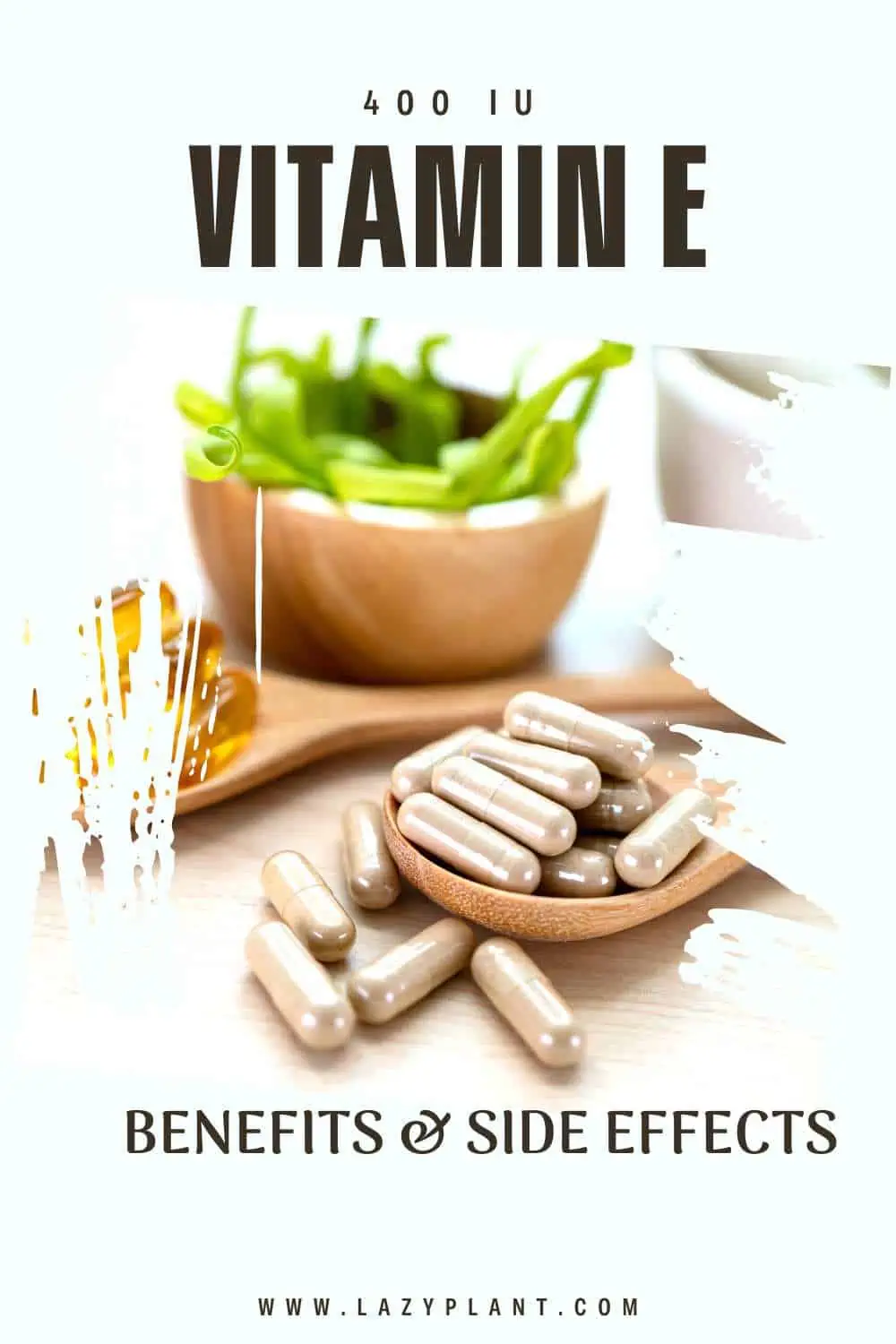
May prevent cancer
The antioxidant properties of vitamin E may also protect from some types of cancer. Vitamin E can enhance the immune system and block the formation of carcinogenic compounds. It seems that vitamin E may be beneficial against breast cancer, colon cancer, and prostate cancer. In many cases, doses of up to 400 IU have been provided to patients for many years without significant side effects.
You’ll find a wide variety of vitamin E supplements on iHerb.
May protect vision
It seems that nutrients with antioxidant functions, such as vitamin E are good for preventing or even treating age-related macular degeneration and cataracts. According to studies, we may protect our good eyesight by taking a daily dosage of 400 IU of vitamin E, along with beta-carotene (15 mg), vitamin C (500 mg), zinc (80 mg), and copper (2 mg)!
Furthermore, consuming more than 20 mg of vitamin E per day may lower the risk of developing age-related macular degeneration!
May delay the onset of Alzheimer’s disease or dementia
Free radicals may damage neurons over time, causing cognitive decline and neurodegenerative diseases, such as Alzheimer’s disease or dementia. Therefore, consuming foods high in antioxidants, such as vitamin E, might be helpful.
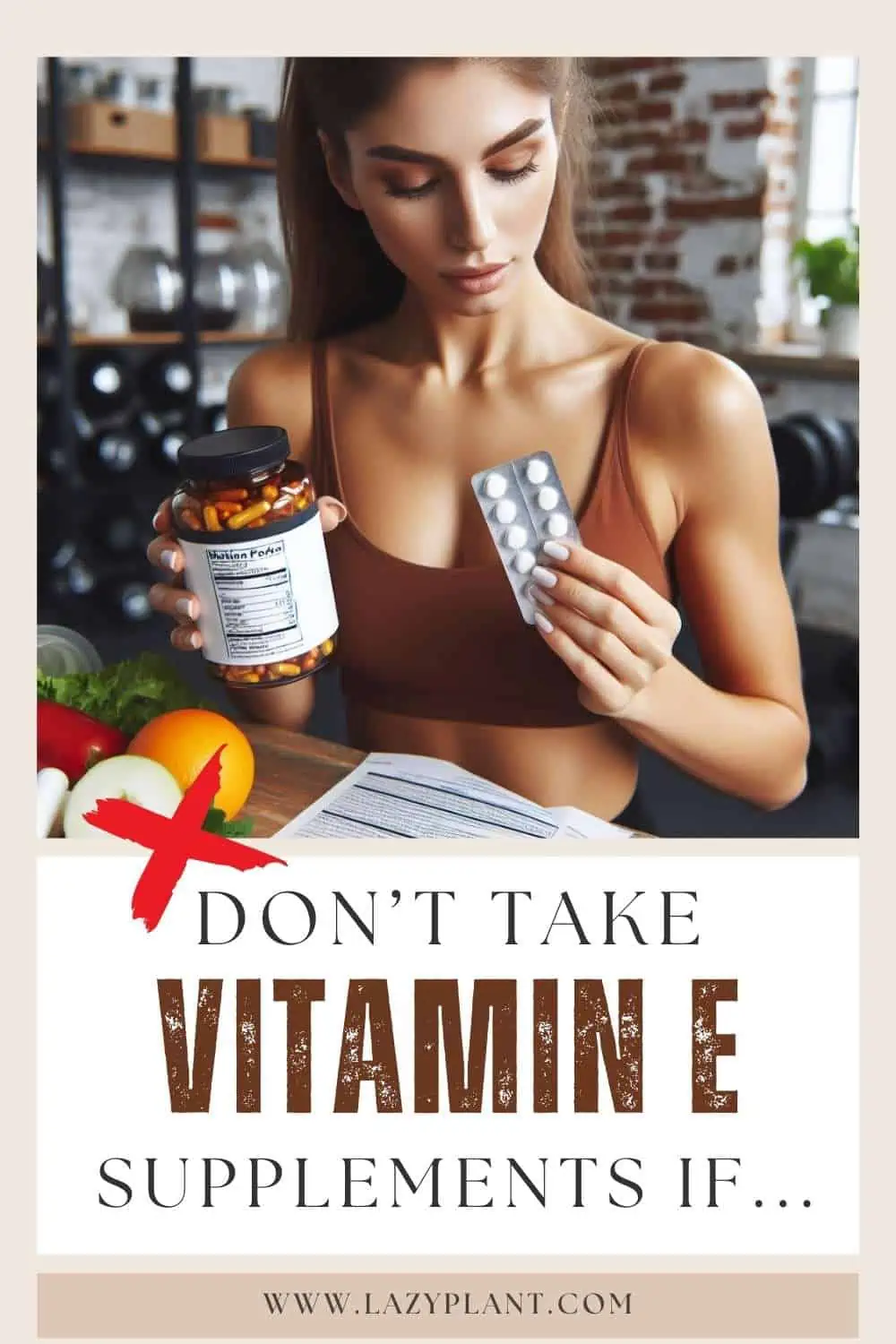
Vitamin E for elastic face & shiny face
Moreover, high doses of vitamin E are good for the skin. Vitamin E reduces wrinkles, and keeps your skin elastic!
Does Vitamin E play a role in Weight Loss?
Vitamin E is not directly linked to weight loss or fat burning. However, its role as a powerful antioxidant can indirectly support metabolic health and fat metabolism. Here’s how:
- Vitamin E combats oxidative damage, which is often elevated in individuals with obesity or metabolic syndrome. Lower oxidative stress can improve overall metabolic efficiency.
- Some studies suggest that vitamin E may improve insulin sensitivity, which could support healthy metabolism and weight management.
- As an antioxidant, vitamin E can reduce muscle damage caused by oxidative stress during exercise. Better recovery might encourage consistent physical activity, a key component of weight loss.
Despite these indirect benefits, vitamin E is not a fat-burning nutrient. Sustainable weight loss is primarily achieved through a calorie deficit, regular exercise, and a balanced diet.
Who should take Vitamin E supplementation?
Vitamin E supplementation is not routinely required for healthy individuals but can be beneficial in specific circumstances:
Fat Malabsorption Disorders: Individuals with conditions like Crohn’s disease, celiac disease, or chronic pancreatitis may have trouble absorbing fat-soluble vitamins, including vitamin E. Supplementation can prevent deficiency and associated neurological symptoms.
Liver Disorders: Non-alcoholic fatty liver disease (NAFLD) has been linked to oxidative stress, and studies suggest vitamin E supplementation may improve liver function in affected individuals.
Age-Related Eye Disorders: In some cases, vitamin E, in combination with other antioxidants like vitamin C and zinc, may slow the progression of macular degeneration.
Neurological Disorders: Vitamin E supplementation may provide protective effects in conditions linked to oxidative stress, such as Alzheimer’s disease or other neurodegenerative disorders.
Immune Support in Older Adults: As people age, their immune systems may benefit from vitamin E supplementation to combat oxidative stress and maintain immune function.
Premature Infants: Babies born prematurely are at risk of vitamin E deficiency due to underdeveloped digestive systems. In these cases, supplementation can help prevent complications such as hemolytic anemia.
When to Consider Supplementation
If you have specific medical conditions, consult a healthcare provider to determine if vitamin E supplementation is right for you.
For most people, a nutrient-rich diet with foods like almonds, sunflower seeds, spinach, and avocado is sufficient to meet daily vitamin E needs without the need for supplements.
Tocopherol vs. Tocotrienol
Tocopherols and tocotrienols are the two main classes of vitamin E, a fat-soluble antioxidant. While they share structural similarities, they differ in their chemical composition and biological effects:
Tocopherols: These are more widely studied and traditionally recognized as the primary form of vitamin E. They have a saturated side chain, making them more bioavailable and stable in the body. Alpha-tocopherol is the most common and active form found in the human body.
Tocotrienols: These have an unsaturated side chain, giving them better mobility in cell membranes and potentially greater antioxidant activity. Tocotrienols are less common in the diet and have unique health benefits not observed in tocopherols.
Health Benefits Comparison
Tocopherols
- Strong antioxidant properties.
- Crucial for protecting cell membranes and supporting immune function.
- Most research focuses on alpha-tocopherol for its role in reducing oxidative stress and supporting overall health.
Found in foods like almonds, sunflower seeds, peanuts, spinach, kale, and plant-based oils (e.g., olive oil, sunflower oil). Alpha-tocopherol is abundant in most supplements.
Tocotrienols
- May provide better protection against lipid peroxidation (oxidative damage to fats).
- Show potential in reducing cholesterol and improving cardiovascular health.
- Demonstrated promising anti-inflammatory, anti-cancer, and neuroprotective effects in emerging studies.
- May protect against conditions like osteoporosis, fatty liver disease, and metabolic syndrome.
Present in smaller amounts in foods like palm oil, rice bran oil, annatto, barley, and wheat germ. Harder to obtain through diet alone, making supplementation more common for those seeking tocotrienols.
Supplements: Tocopherols vs. Tocotrienols
Alpha-tocopherol (tocopherol) is the better choice because it is the primary form of vitamin E in the body and more abundant in the diet. Most vitamin E supplements on the market contain alpha-tocopherol. It’s suitable for general antioxidant support and to meet daily vitamin E needs.
Tocotrienols may be better suited for individuals focusing on cardiovascular health, reducing inflammation, or targeting specific conditions like fatty liver or metabolic syndrome. Often marketed for specific health benefits, such as cardiovascular or neuroprotective support. Typically derived from sources like annatto, palm oil, or rice bran.
Both tocopherols and tocotrienols are beneficial forms of vitamin E, but they serve slightly different purposes. For a well-rounded approach, aim to get tocopherols from your diet and consider tocotrienol supplementation if recommended by a healthcare provider for targeted benefits. Including diverse sources of vitamin E-rich foods ensures you benefit from both forms.